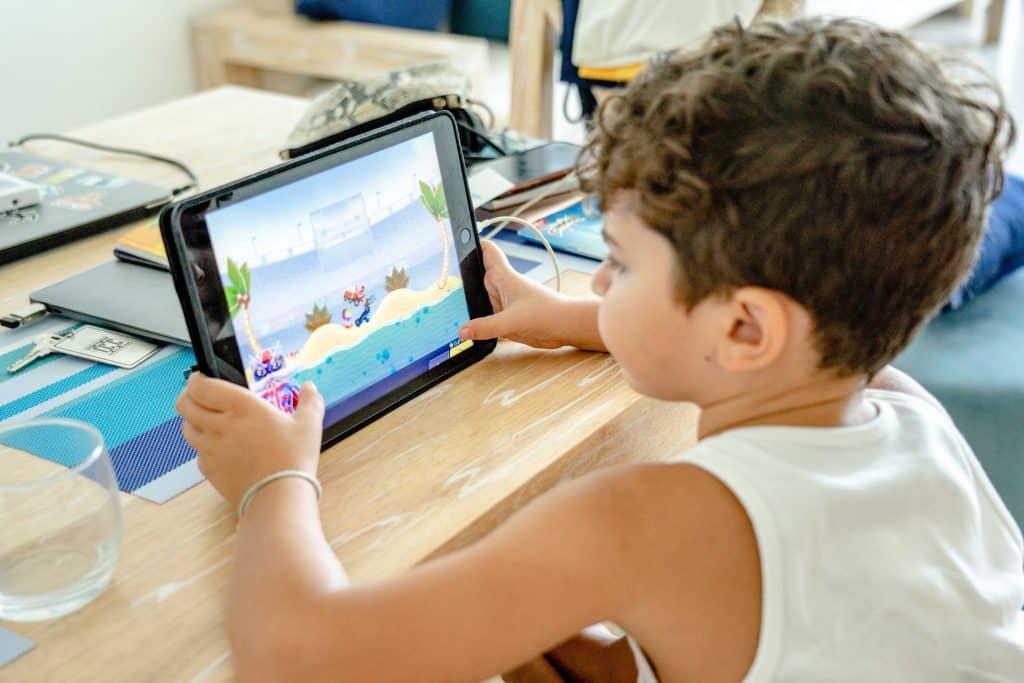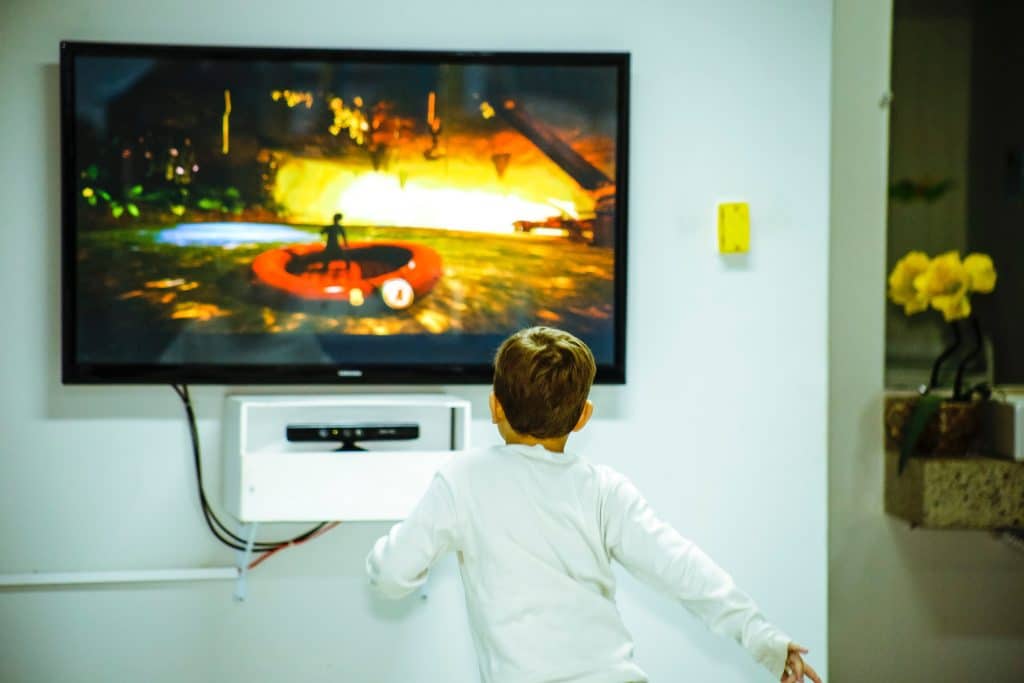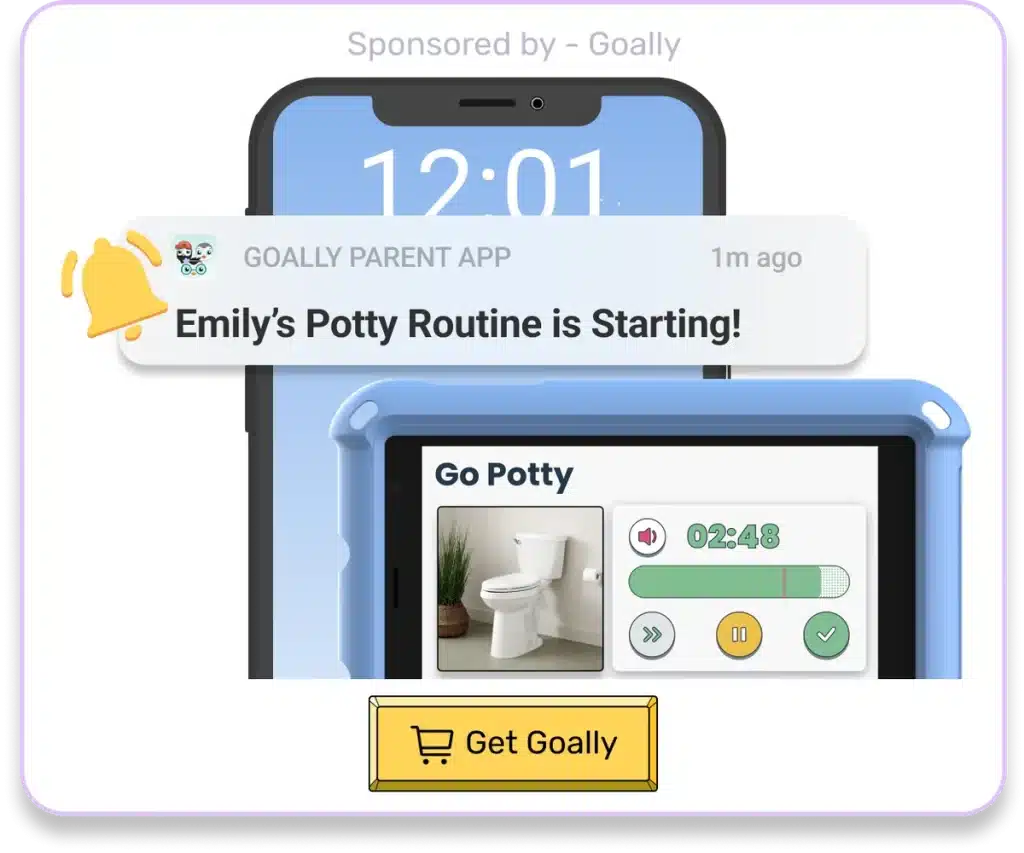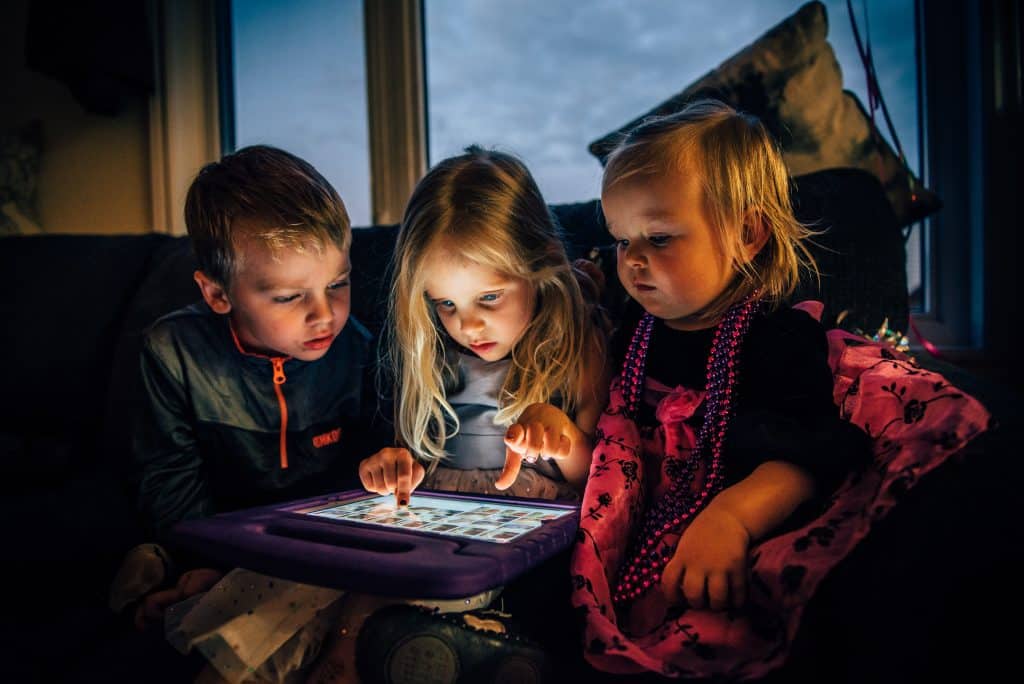Are you tired of the constant battle over screen time with your kids? You’re not alone! As caregivers and parents of neurodivergent kids, we know that managing screen time can be a challenge. But have you ever wondered about the reasons why screen time is bad? In this listicle, we’ll dive into five compelling reasons that will make you think twice before handing over that tablet or remote control. So get ready because it’s time to shed some light on the dark side of screens!
Table of Contents
1. Impact on Sleep Quality
One top reason why too much screen time is bad for kids, especially those with thinking and learning differences, is its negative impact on sleep quality. The blue light from screens can lower melatonin production, making it harder for your child to fall asleep and stay asleep.
The Science Behind It
Research has shown that exposure to blue light emitted by screens suppresses melatonin production more than any other type of light. Melatonin is a hormone responsible for regulating our sleep-wake cycle (circadian rhythm). When melatonin levels are disrupted due to excessive screen use before bedtime, it becomes difficult for children to fall asleep and maintain restful sleep throughout the night.
Quick Tips:
- Make bedtime routines screen-free
- Set a “technology curfew” at least an hour before bed
- Use apps or settings to reduce blue light exposure

2. Hindered Social Skills Development
Neurodivergent kids may already face challenges in developing social skills due to their unique neurological makeup. Excessive screen time can further hinder their ability to interact with others and build meaningful relationships.
The Connection Between Screen Time & Social Skills
When children spend too much time engaging in solitary activities like watching TV shows or playing video games instead of interacting with peers or family members face-to-face, they miss out on valuable opportunities to practice and develop essential social skills. This can lead to difficulties in forming friendships, understanding social cues, and empathizing with others.
Key Points:
- Encourage face-to-face interactions over virtual ones
- Schedule playdates or group activities for social connections
- Limit solitary screen-based activities
Read More: Reward Systems for Kids
3. Increased Risk of Obesity
Sitting still while using screens contributes to an increased risk of obesity in children. Kids need physical activity for healthy growth and development. Children who spend excessive amounts of time sitting in front of screens are prone to adopt a sedentary lifestyle, which is a major contributing factor to childhood obesity. Physical activity is vital for keeping a healthy weight, improving cardiovascular health, building strong bones and muscles, and promoting overall well-being.
Action Steps:
- Create daily exercise routines for the whole family
- Promote outdoor playtime as much as possible
- Balance sedentary activities with active ones
4. Strain on Eyesight
Staring at screens for long periods can cause eye strain, discomfort, and even long-term vision problems like myopia (nearsightedness).
Digital Eye Strain & Vision Problems
Prolonged exposure to screens leads to digital eye strain symptoms such as dry eyes, blurred vision, headaches, neck pain, or back pain due to poor posture when using devices. Additionally, studies have shown that children who spend more time on screens are at higher risk of developing myopia (nearsightedness), possibly due to the lack of outdoor exposure, which has been linked to better eye health.
Eye Care Essentials:
- Follow the 20/20/20 rule (every 20 minutes, look at something 20 feet away for 20 seconds)
- Ensure proper lighting when using screens
- Schedule regular eye exams

Read more: What Things Make ADHD Worse?
5. Potential Negative Effects on Mental Health
Lastly, too much screen time has been linked to increased anxiety and depression in children – including neurodivergent kids who might be more susceptible due to existing challenges.
The Link Between Screen Time & Mental Health
Research suggests that excessive screen time can contribute to feelings of loneliness, low self-esteem, and even symptoms of depression or anxiety in children. This may be because of factors such as social isolation, exposure to negative content online (e.g., cyberbullying), or the displacement of other activities that promote mental well-being (e.g., exercise, hobbies).
Mental Health Must-Dos
- Monitor and limit exposure to potentially harmful content
- Encourage open communication about feelings and emotions
- Seek professional help if you notice concerning changes in your child’s behavior
Goally | Routines that Actually Work
Goally’s skill building tablet for kids has routines that break down large tasks into small, achievable steps. It helps kids complete their tasks independently!

Create custom routines with your own videos & pictures for every step. The steps come in small, bite-sized pieces to help your child learn the little fundamentals (like putting the toothpaste on their toothbrush!) to achieve bigger goals. And that’s just the beginning. See it in action:
In summary, managing screen time is crucial for the well-being of our neurodivergent kids. By being aware of these five reasons why screen time is bad, you can take steps to strike the right balance between technology and other essential aspects of your child’s life. Remember, it’s not about completely eliminating screens but rather fostering healthy habits that promote overall growth and development. So go ahead – power down those devices from time to time and embrace the joys of real-life experiences with your amazing kids!
FAQs About the Reasons Why Screen Time Is Bad
How does excessive screen time impact a child's sleep? Increased screen time, particularly before bed, can disrupt sleep patterns and make it harder for children to fall asleep, due to the emitted blue light suppressing the production of melatonin, the sleep hormone.
Can too much screen time affect a child's physical health? Yes, excessive screen time can lead to physical health problems like obesity, poor posture, and vision problems due to sedentary behavior and prolonged close viewing of digital screens.
How does screen time affect a child's social skills? Excessive screen time can impair a child's social skills development as it reduces face-to-face interaction, vital for learning non-verbal cues, empathy, and conflict resolution skills.
What cognitive issues are associated with too much screen time? Excessive screen time can impair children's attention span, creativity, and learning abilities, potentially contributing to developmental delays or learning disorders.
How can parents manage their children's screen time? Parents can manage screen time by setting clear boundaries, promoting outdoor activities, encouraging real-world social interactions, and using educational content to make screen time more productive.
This post was originally published on 04/17/2023. It was updated on 03/13/2024.

Goally
We help parents teach their kids life skills, like doing bedtime and morning independently. Backed by science, we incorporate evidence-based practices and expert-informed designs in all of our apps and content.







